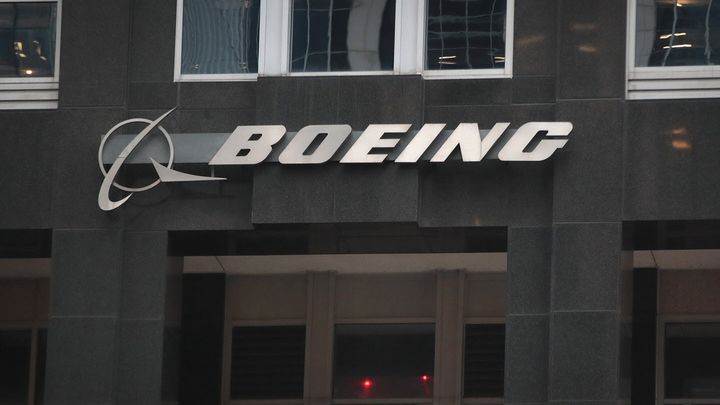The American Prospect is a nonprofit, independent magazine covering public policy and politics. Sludge is re-publishing this article.
As the nearly $2 trillion congressional stimulus package comes into clearer focus, one of the most controversial components remains the corporate bailout package (which, as has been noted in the Prospect, is massive). In the days and weeks leading up to the bill’s final draft, a number of industries have been floated—by themselves or by the Trump administration—as worthy bailout recipients, due to the challenging economic conditions of coronavirus-induced shutdown. Among those listed: the airline industry, Boeing, the cruise lines, the fossil fuel companies, and more.
What do these industries have in common? They operate in far-flung corners of the economy, some consumer-facing, some not so much. Some are represented by veritable armies of lobbyists, others seem to just be near and dear to the Trump administration’s heart. But one thing that they all share is a pioneering commitment to federal income tax evasion. All of the industries listed are among the country’s most decorated exploiters of tax loopholes, offshoring, and public subsidies. In healthy economic times, they contribute almost nothing in tax revenue; now, in crisis, they’re poised to be some of the biggest recipients of public funding.
Let’s start with the airlines, which are poised to receive the lion’s share of a $75 billion fund earmarked for “businesses critical to national security.” How much have the airlines contributed to the public sector in recent years, during a time of record-shattering profits? In the two full years since enactment of the Tax Cuts and Jobs Act, the seven largest U.S. carriers reported $30 billion of pretax income. On that haul, they paid an average effective federal income tax rate of 2.3 percent. According to Matthew Gardner at the Institute on Taxation and Economic Policy, that rate is actually inflated by Southwest Airlines, which accounts for the overwhelming majority of the income taxes paid by this group. “The other six—Delta, American, United, Alaska Airlines, Spirit and Jetblue—paid effective rates in the single digits or negative during this two-year period,” he wrote in early March. Delta, JetBlue, and Alaska all paid an effective federal tax rate of zero or less in 2018.
That’s because of their widespread use of tax deferral, a generous provision in the Trump tax code. These companies have been using depreciation-related tax breaks to defer nearly all income taxes for the past two years. Every time they purchase a new plane to replace a sidelined one, the depreciation machine restarts. This minimizes tax contribution while juicing airline industry profits to help make the stock price look more appealing to investors. And if that wasn’t enough, to buy back their own stock, on which they’ve spent 96 percent of free cash flow during the past ten years.
Boeing, meanwhile, was paying single-digit federal tax rates even before the Trump tax cuts came along. Over the ten years prior to the Trump administration’s 2017 cut to the corporate tax rate, a time when corporations were levied at 35 percent, Boeing paid an effective federal tax rate of 8.4 percent on $54.7 billion of U.S. profits. Often, the company has paid negative income tax rates. To top things off, it took home an extra $1.1 billion after the Tax Cuts and Jobs Act passage.
That doesn’t even account for Boeing’s wealth of public contracts—$23.4 billion in government contracts in 2017, and multiple multibillion-dollar contracts in 2018 from the Department of Defense. Nor does it account for Boeing’s staggering use of state and local tax breaks, good for $14 billion, according to Good Jobs First. That group’s subsidy tracker also identified $70 billion in federal loans, loan guarantees, and bailout assistance: That’s before this most recent congressional bailout package. The stock price, accordingly, has surged during the past two days.
Cruise lines, meanwhile, have made effective use of offshoring to whittle their tax contributions down to nothing. Though they seem like American companies, are all traded on the New York Stock Exchange, and fully expect the American federal government to cut them a check, none of those companies are actually registered in the United States. Carnival Corporation is incorporated in Panama; Norwegian Cruise Line is incorporated in Bermuda; and Royal Caribbean is incorporated in Liberia, while their ships fly flags of various foreign countries. That right there accounts for 70 percent of the global cruise ship market.
These companies gleefully exploit an IRS provision that says that income earned via the international operation of a ship by a corporation set up in a foreign country is tax-exempt. That allows them, too, to pay negative income tax rates: In 2019, Carnival and Norwegian both reported that they received more in refunds or deductions than they paid or set aside for taxes. Royal Caribbean, meanwhile, told its shareholders its total income tax expense for 2019 was $32.6 million, on a total income of $1.9 billion. That’s 1.7 percent. And that’s to say nothing of their track record on labor (horrible) and environmental issues (also horrible).
Finally, the fossil fuel companies. Like Boeing, the fossil fuel industry has long enjoyed massive federal subsidies and tax breaks, made expert use of depreciation-driven tax deferrals, and paid next to nothing in federal income taxes. In 2018, Chevron paid an effective federal tax rate of zero; so too did EOG Resources (formerly known as Enron Oil and Gas). Ditto Halliburton, Kinder Morgan, Devon Energy, and more. Even before the Trump tax cut, from 2009 to 2013, the 20 largest oil and gas companies deferred payments on up to half of their federal income taxes, resulting in them paying a rate of just 11.7 percent on their pretax income. Meanwhile, ExxonMobil has enjoyed almost $4 billion in federal loans, loan guarantees, and bailout assistance.
The Trump tax cut kicked this long-standing trend into overdrive, resulting in 91 profitable Fortune 500 firms paying $0 in federal income taxes in 2018. Many of these same companies will travel hat in hand back to the government, who will move mountains to find money to deal with a near-term crisis.
So after years, or decades, of salting away record profits, or clamoring for lower and lower tax rates and funneling money to shareholders, the country’s largest corporations are threatening to shut down if the federal government doesn’t show them a bit of generosity. They were happy to reap federal contracts, enjoy federal subsidies, and rack up federal bailouts, taking out public money at every opportunity, all in the name of private profits. But they continue to have no interest in contributing money back into the public coffers, in good times or bad. Their belief in the value of the state, and the public purse, extends only to when they need it to balance out their books.
Of course, the bailouts could easily stipulate an end to these sorts of practices. In fact, they could mandate that recipients onshore their operations, or end any number of evasive practices. But there’s been little indication that that will be part of the package. And as programs like TARP, a signature component of the 2008 bailout package, taught us, without strict enforcement, loopholes will continue to be sought. For America’s largest and most profitable corporations, public money will continue to be viewed as a one-way street.
Related:



